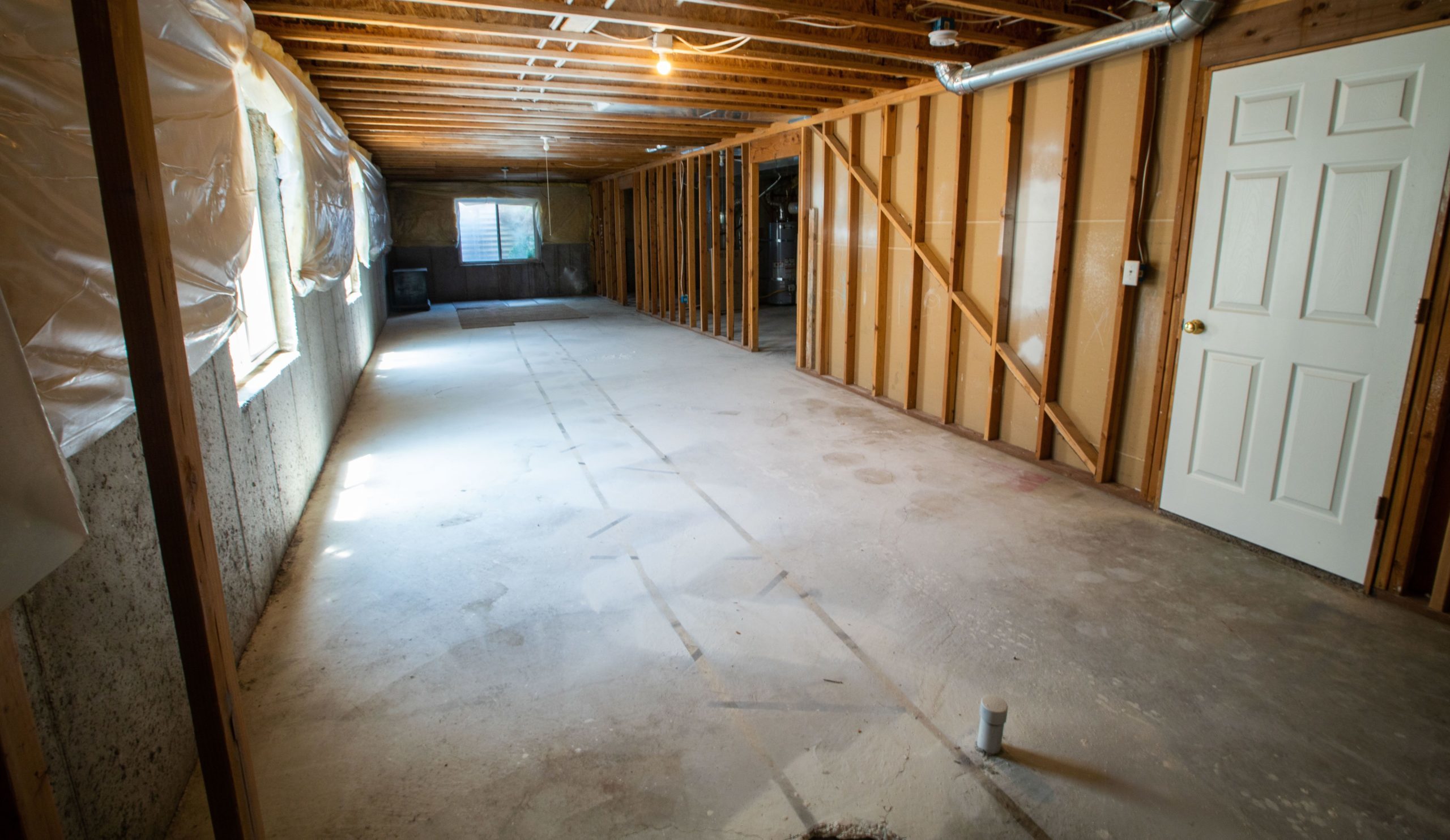
Key Takeaways
- Basement remodeling (or finishing) is rapidly growing in popularity.
- The average cost of a basement upgrade can be as much as $75,000.
- You should put contingencies in your budget to allow for materials shortages.
- One of several was to use your equity to complete a remodel or finish project is to consider a home equity agreement.
Basements add functional and fun extra space in your home
During what we’ll unscientifically call “Big Covid,” March 2020 to February 2021, many people worked on their homes – because they were home much more often than before the pandemic. Projects were of every size and scope were undertaken. In parts of the country where basements in homes are common, many homeowners looked down the stairs to their lower space and imagined a new, expanded area to improve or build out from scratch. From bars to home theater zones to extra bedrooms, a basement can add immediate return on investment by giving one the opportunity to enjoy an upgraded living space. The financial ROI can be valuable as well, depending on what kind of improvements are done down there.
Finished vs. remodeled: what’s the difference?

Depending on the current state of the basement area, a homeowner could perform a remodel or a finish.
Typically, a remodel consists of:
- ensuring the space is protected from water
- installing HVAC infrastructure
- installing plumbing and electrical
- framing additional rooms
In a finishing project, improvements are often made to an existing space, including:
- installing flooring
- painting
- hanging drywall
- installing crown molding or baseboards
Remodeling and finishing aren’t mutually exclusive, of course. Some people do both as part of one big project.
What does a basement upgrade usually cost?
Because there are so many factors which go into a basement upgrade, it’s impossible to land on a fixed number. But most experts recommend using a range of between 32 and 47 dollars per square foot. Example: in a project targeting 900 square feet of basement space, then assuming the cost would be 40 dollars a foot:
900 x $40 = $36,000
When doing budgeting for the project, it’s wise to account for cost increases, shortages, and other unexpected contingencies. Tacking 10-15% additional funds onto your budget will help eliminate supply chain and other surprises later.
Here’s an online calculator to help you get a general idea of possible costs in your state/region.

What’s the best way to finance a basement upgrade?
Homeowners with great equity have several options to pay for their project.
1. HELOC (home equity line of credit)
Think of HELOCs as a credit card – a revolving fund you can access with your available equity to pay for your project in an ongoing manner. Interest rates are usually variable and there are often few to no closing costs. It’s important to note that interest is being charged, so it’s critical that you stay out of trouble by not using HELOC funds on frivolous or non-essential things.
2. HEL (home equity loan)
What makes it different than a HELOC is home equity loans are a one-time, lump payment to you. You receive the funds, then pay some of the same costs you did when you got your first mortgage (closing cost, etc.) There is usually a minimum loan amount of around $35,000. Interest rates on HELs are generally fixed. Your home is on the line with an HEL; if the value of your home decreases, you could find yourself under water.
3. HEA (home equity agreement)
Another option to fund your basement remodel or finish with equity is a home equity agreement. What makes HEAs different from other financing options is that, with an HEA, you are not getting a loan. There are no monthly payments, and there is no interest charged.
Your HEA provider fronts the homeowner a portion of their equity in cash, with one payment. After 10-30 years (depending on the provider), you settle up by sharing in the proceeds of the sale of the home or paying out with cash. There are other options available to you. HEAs are a unique way to use your home equity to finish that basement, or use funds to pay down debt. It’s your money. You have the flexibility to decide how to use it.
Consider a home equity agreement with Unlock Technologies
Unlock HEAs could be the way to transform that gloomy, damp basement into a splendid living space you and your family will enjoy for years! Contact Unlock Technologies and see if an HEA is right for you.
The blog articles published by Unlock Technologies are available for general informational purposes only. They are not legal or financial advice, and should not be used as a substitute for legal or financial advice from a licensed attorney, tax, or financial professional. Unlock does not endorse and is not responsible for any content, links, privacy policy, or security policy of any linked third-party websites.”


